13 Oscar-Winning Movies That Are Offensive by Today’s Standards

Before you watch the 97th Annual Academy Awards this Sunday, March 2, which will air live on ABC and stream for the first time on Hulu, how about a little history lesson?
Of course, the night is meant to celebrate the groundbreaking performances and cinematic achievements of movies released in 2024, including Emilia Pérez, which has received 13 nominations, The Brutalist, and Wicked (both with 10 nominations). And this year’s host, Conan O’Brien, will surely bring the laughs.
However, what’s not so funny is the fact that the Oscars has crowned some winning films in the past that no longer deserve their golden statues. These Best Picture winners and acclaimed classics have problematic depictions of race, gender, and cultural stereotypes that wouldn’t fly if they were released today. From whitewashed casting to sexist tropes and outdated humor, the following 12 Oscar-winning movies—spanning from 1931 to 2018—serve as a stark reminder of how societal norms have shifted over time, and how there’s still work to be done in the industry and beyond to have more inclusive and thoughtful storytelling.
RELATED: 15 Movies That Won the Most Oscars Ever
1
Cimarron (1931)

Cimarron took home the Oscar for Best Picture (then known as Outstanding Production) in 1931, making it the first Western film to do so. The film certainly provided an escape while the Great Depression plagued Americans, but these days, its portrayal of both Black people and Indigenous people wouldn’t fly.
Based on Edna Ferber’s novel of the same name, the movie depicts clear racism toward Black people, per a review from Worthy Podcast. The character of Isaiah (Eugene Jackson) takes the brunt of this, as he’s often used as comic relief and associated with racial stereotypes. In terms of portraying Indigenous people, the movie also makes use of slurs that reinforce stereotypes about Native people being wild and “incapable of civilization,” Jonathan Perez pointed out in a 2010 review. In addition, Native characters are played by white actors.
Perez noted that while the film is intended to promote equality—the main character, Yancey Cravat (Richard Dix), is “accepting of all people”—it’s hard for that message to come across amid the racist undertones.
“I think in 1931, the filmmakers wanted to do justice to Edna Ferber’s novel, but there is a reason why when books are turned into a movie, it is called an adaptation,” Perez wrote. “Ultimately though, I think Cimarron is best seen as a window into the attitudes of filmmakers in 1931, rather than a classic that will endure for all time.”
2
Swing Time (1936)
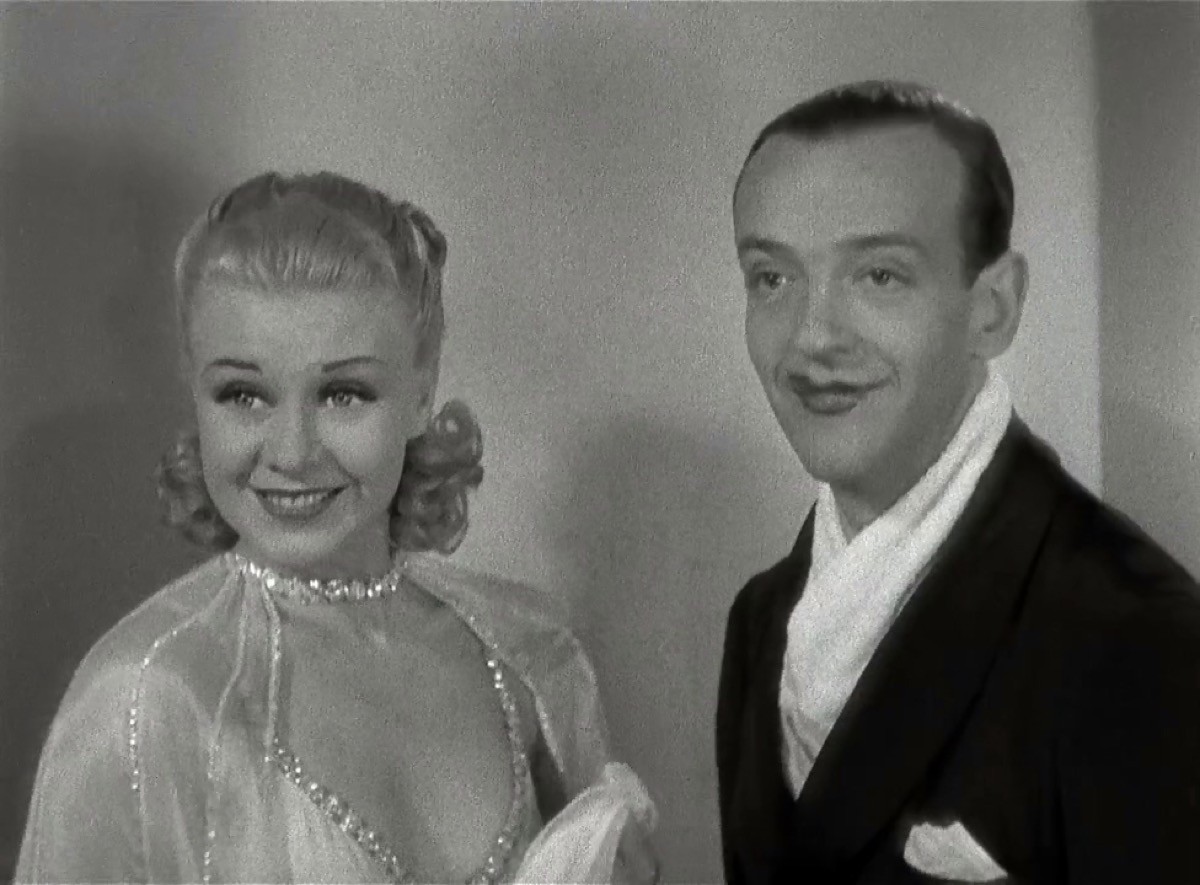
As a whole, the 1937 Best Music and Best Original Song winner, Swing Time, doesn’t create too much of an issue, but one problematic scene would not sit well with modern-day viewers.
In a tribute to Black tap dancer Bill “Bojangles” Robinson, the character of John “Lucky” Garnett (Fred Astaire), dons blackface. As a result, the scene “comes across jarring and unnecessarily racist,” Kevin O’Rourke wrote in a piece for the Michigan Quarterly Review.
“One might argue that blackface performances of the thirties and forties (and earlier) are so far in the past and such a product of their time as to be beyond judgment, but I’d disagree,” O’Rourke continued. “I’d rather assessments of artists be made with knowledge of their warts and all.”
O’Rourke also noted that he was “raised on” Fred Astaire and specifically enjoyed his films with Ginger Rogers, which is what makes the blackface scene in Swing Time “personally upsetting and intellectually perplexing.”
“The blackface Astaire wears is such an incredible disappointment, and because—like so much we learn about our heroes—it complicates the view of Astaire as a genial, widely beloved star of stage and film whose dancing gladdened millions, [Astaire] certainly was these things, but he also participated in and perpetuated a harmful tradition of racist minstrelsy,” O’Rourke wrote. “The blackface Astaire wears in Swing Time, regardless of his intentions or the time in which he wore it, mars, and will continue to mar, his legacy.”
RELATED: The 5 Most Cringe-Worthy Oscar Acceptance Speeches
Like Gone With the Wind and Breakfast at Tiffany’s, Swing Time was part of a 2021 effort by Turner Classic Movies (TCM) called “Reframed Classics.” The goal of the series was to discuss films with problematic elements rather than just immediately dismiss and cancel them as a whole.
“We know millions of people love these films,” TCM host Jacqueline Stewart told the New York Post. “We’re not saying ‘This is how you should feel about Psycho, or ‘This is how you should feel about Gone with the Wind.’ We’re just trying to model ways of having longer and deeper conversations and not just cutting it off to ‘I love this movie.’ ‘I hate this movie.’ There’s so much space in between.”
3
The Good Earth (1938)
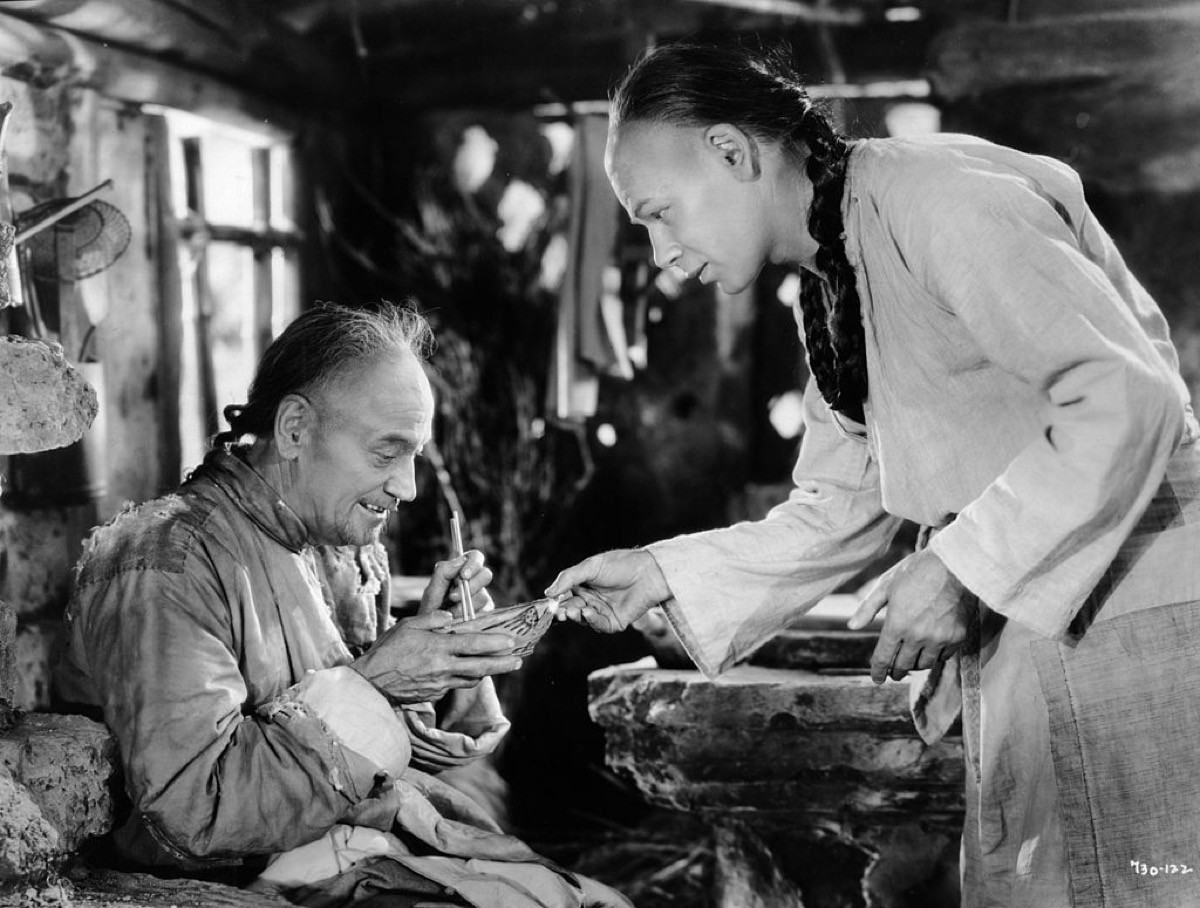
We’ve come a long way since 1938, when this controversial film was celebrated at the 10th Academy Awards. The Good Earth was up for five Oscars, with Luise Rainer nabbing the Best Actress trophy for her leading role as O-Lan. The movie was based on Pearl S. Buck’s Pulitzer Prize-winning novel about a group of farmers in China. However, Rainer isn’t Chinese, and neither was her co-star, Paul Muni.
The performance is a “classic example of yellowface,” Vanity Fair points out. On a sadder note, the role could have gone to Chinese-American actor Anna May Wong, who did multiple screen tests. MGM producer Albert Lewin, who was casting the film, wrote that while Wong “deserves consideration,” she “does not seem beautiful enough” to play the part. Instead, she was offered the role of courtesan Lotus, which plays into yet another stereotype.
“I’ll be glad to take the test, but I won’t play the part,” Wong reportedly told MGM at the time. “If you let me play O-Lan, I’ll be very glad. But you’re asking me—with Chinese blood—to do the only unsympathetic role in the picture, featuring an all-American cast portraying Chinese characters.”
4
Gone With the Wind (1939)
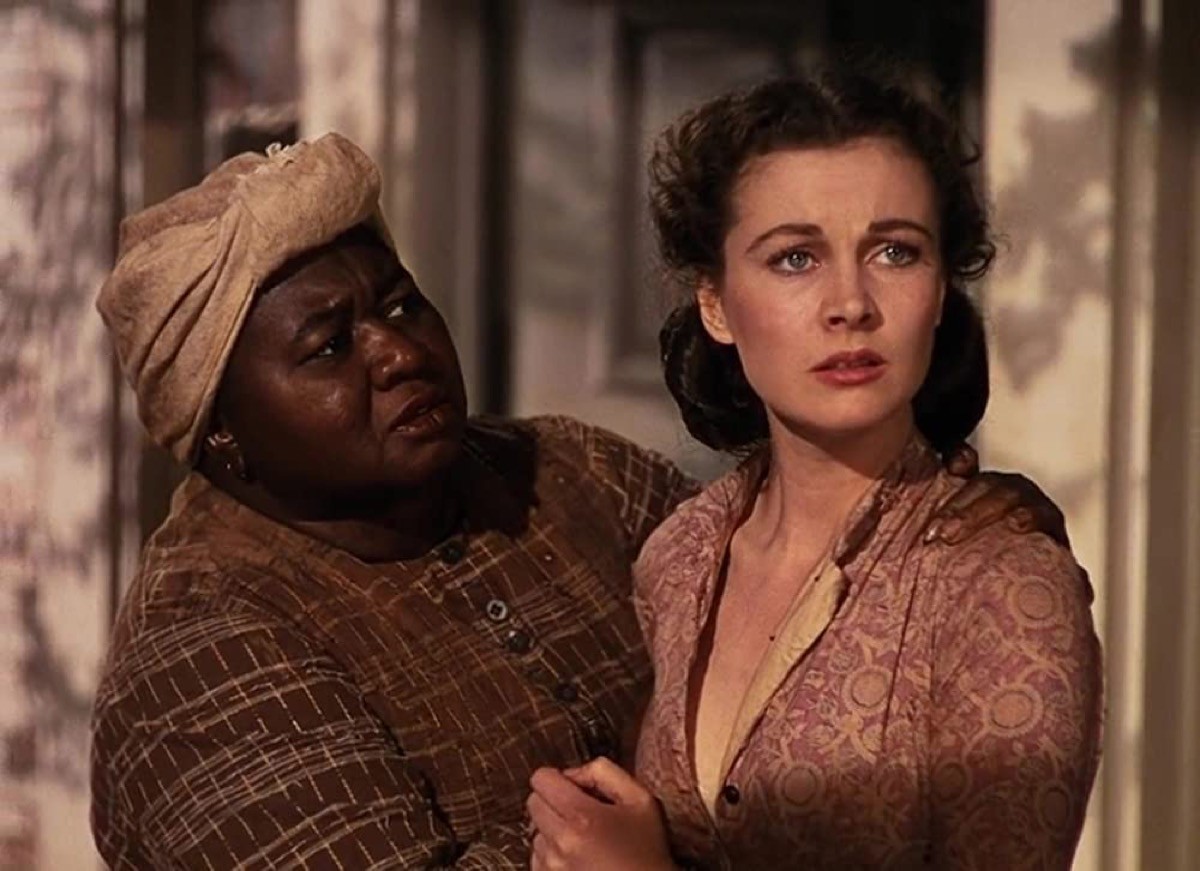
It’s one of the most iconic films of all time, but Gone With the Wind is also considered one of the most problematic. The 1939 film took home eight Oscars, including Best Picture and Best Supporting Actress for Hattie McDaniel—who became the first Black Oscar winner, per The New York Times. These days, however, the movie is heavily criticized for its romanticization of the antebellum South and for portrayals that many consider to be racist.
The film was available to stream on HBO Max in 2020, but it was pulled in June after critics voiced their opposition. John Ridley, who won Best Adapted Screenplay for 12 Years a Slave in 2014, called for the removal in a Los Angeles Times op-ed, arguing that “when it is not ignoring the horrors of slavery, [the film] pauses only to perpetuate some of the most painful stereotypes of people of color.”
Ridley also pointed out that there was no disclaimer for the film, which HBO Max added when it reintroduced the movie to the platform a few weeks later. The streamer also included two videos that outlined Gone With the Wind‘s “historical context,” The Guardian reported.
RELATED: 8 Classic Movies That You Can’t Watch Anywhere
5
Breakfast at Tiffany’s (1961)
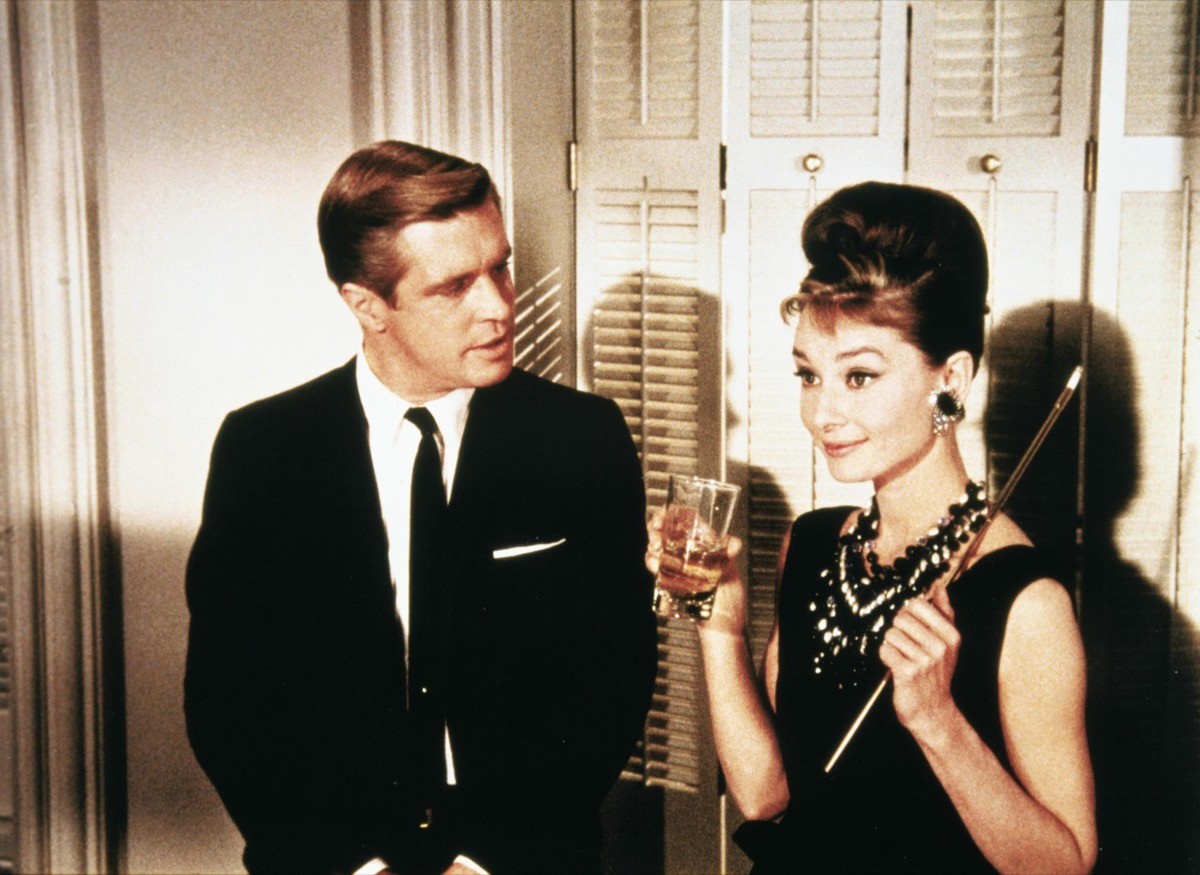
While it’s a classic beloved by generations of rom-com fans, Breakfast at Tiffany’s—which was nominated for five Academy Awards and won two—would likely have had some edits if it were made today.
“The romantic comedy is problematic in that it reflects the harmful societal biases that were prevalent in the ’60s,” Lauren Koong wrote in a 2023 critique of the movie. “Although we can recognize that it is a product of its time, it is almost impossible to move beyond those biases if we continue to place this film on a pedestal.”
She points to “the racism and discriminatory stereotypes of that era,” most notably through Holly Golightly’s (Audrey Hepburn) neighbor, I.Y. Yunioshi, who was portrayed by white actor Mickey Rooney in yellowface makeup.
“His character is made out to be the comedic relief, yet the comedy is at the expense of his race—he speaks in a heavy accent and uses exaggerated facial expressions,” Koong wrote. “This illustrates how little regard Hollywood had for authentic portrayals of people of color. Not only does this portrayal reinforce negative stereotypes, it is also dehumanizing, as Yunioshi becomes a caricature.”
Koong also pointed to gender roles in the film, as Holly ends up “falling into her neighbor’s arms” as opposed to standing on her own two feet.
6
American Beauty (1999)
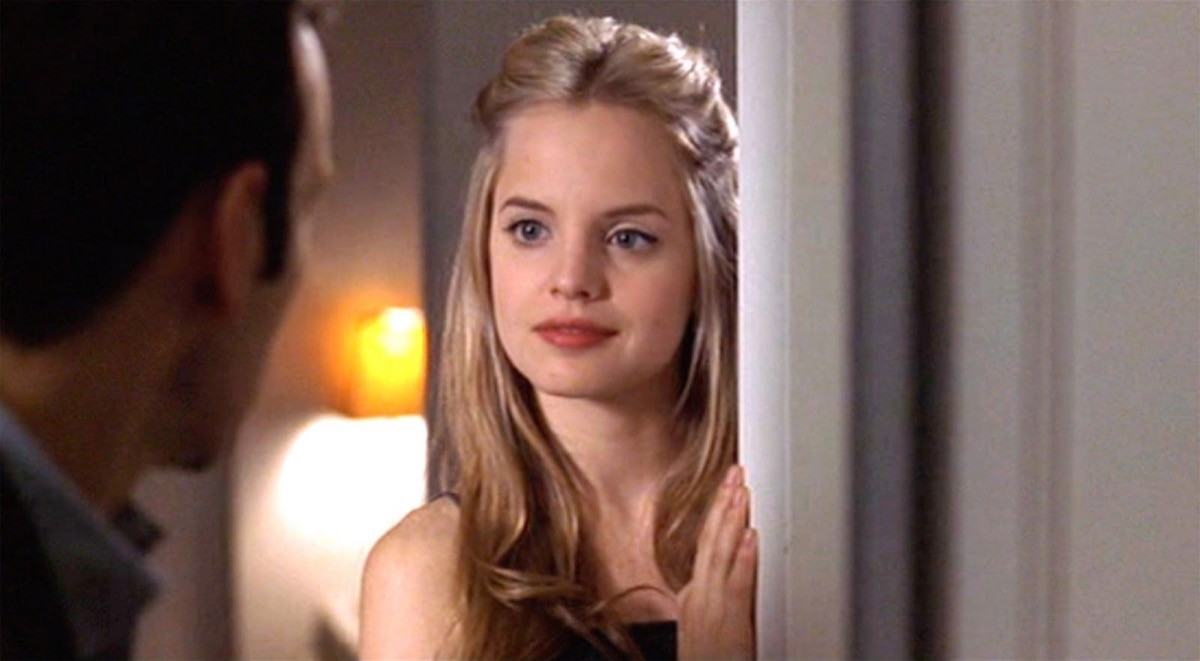
In 2000, American Beauty scored five Oscar wins, including Best Picture. The film follows middle-aged father Lester Burnham, played by Kevin Spacey, as he obsesses over his teenage daughter’s (Thora Birch) friend Angela (Mena Suvari).
While Suvari’s character is seen as confident and sexually aware, there’s a clear imbalance of power. Although Lester does not end up having sex with the underage Angela, she is completely tossed aside and ultimately serves as a “vehicle” to facilitate an epiphany in Lester’s mid-life crisis, according to a critique from Screen Queens.
For her part, Suvari spoke out about her depiction in American Beauty during a July 2022 interview with The Guardian, emphasizing that she knew she was there to be attractive.
“I identified with Angela. I knew how to play that role, because I was so schooled in it. ‘Oh, you want me to be sexually attractive?’ Done,” she told the outlet. “I felt unavailable in a million other ways, but I knew how to play that card.”
These days, viewers of the film may make a connection to the real-life allegations against Spacey, who, in 2017, was accused of making sexual advances against actor Anthony Rapp when he was 14 years old. As People reported, Spacey said he did not remember the encounter but offered his apology. After subsequent allegations of sexual misconduct were leveled against the actor, his representative said that he was seeking treatment, per People. In July 2023, a jury in England acquitted Spacey of all nine charges against him, including seven counts of sexual assault.
RELATED: 7 Classic Cartoons That Are Offensive by Today’s Standards
7
Crash (2005)
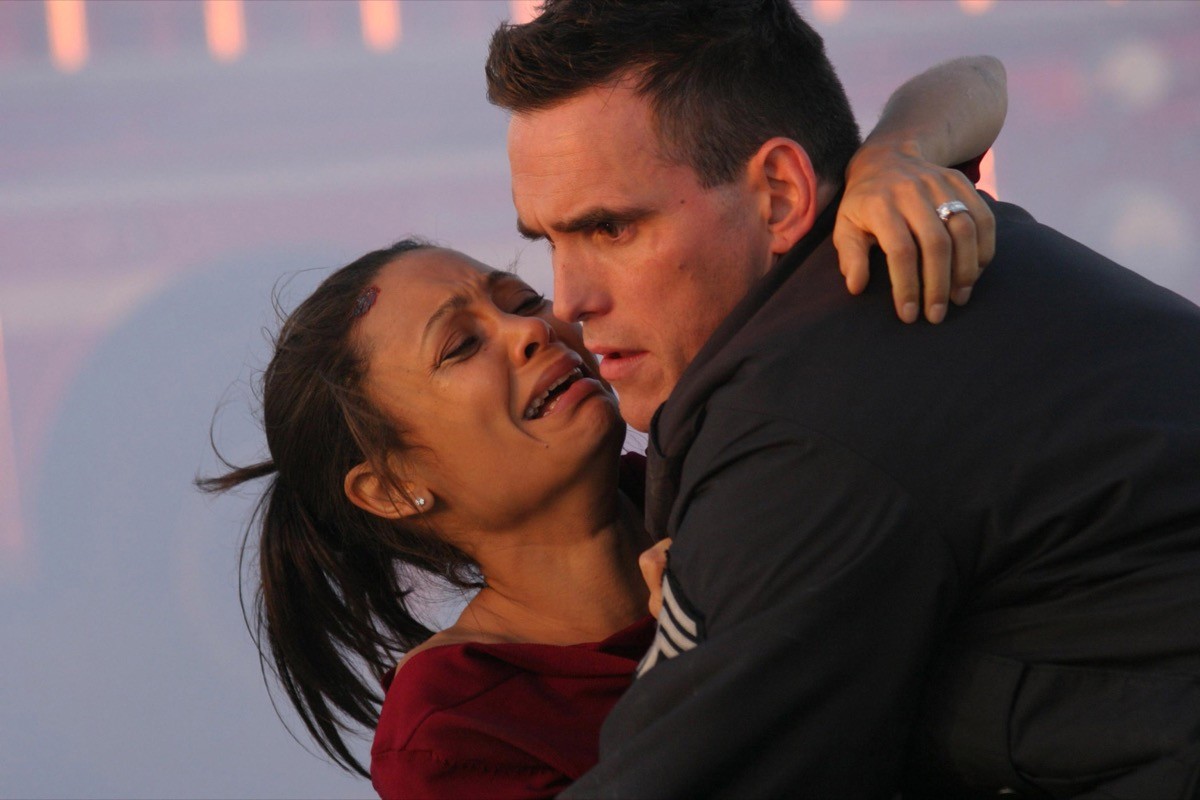
One of the most notorious Best Picture winners is 2005’s Crash. The movie is a depiction of race relations in Los Angeles, starring big names like Thandiwe Newton, Matt Dillon, Don Cheadle, and Sandra Bullock. It was originally lauded for being progressive, but the movie has aged poorly, some say. Co-written and directed by Paul Haggis, of Million Dollar Baby fame, Crash is now criticized for the stereotypes it depicts and the way it appeals to “White guilt.”
“If anything, Crash is too touchy—so heavy-handed that, over the course of its near two-hour run, the story it attempts to tell hardly even matters,” Tirhakah Love wrote for LEVEL in 2020, reflecting on the film 15 years after its release. “The ease with which Haggis stereotypes and demeans his characters speaks to Americans’ most paranoid sensibilities.”
While the film did have a range of “onscreen representation,” which was novel for 2005, Love points out that only the white characters evolve. A key example would be Dillon’s character, Officer Ryan, who can put aside his racist attitude to save Newton’s character after a car accident.
“Crash places the burden of [cultural] harmony on non-White people, and—more violently—on Black women,” Love wrote. “That may reflect life in the most brutal ways, but against the starkness of a White-redemption backdrop, it exposes itself as the exact opposite of the progressive ‘kumbaya’ it was intended to be.”
8
Slumdog Millionaire (2008)
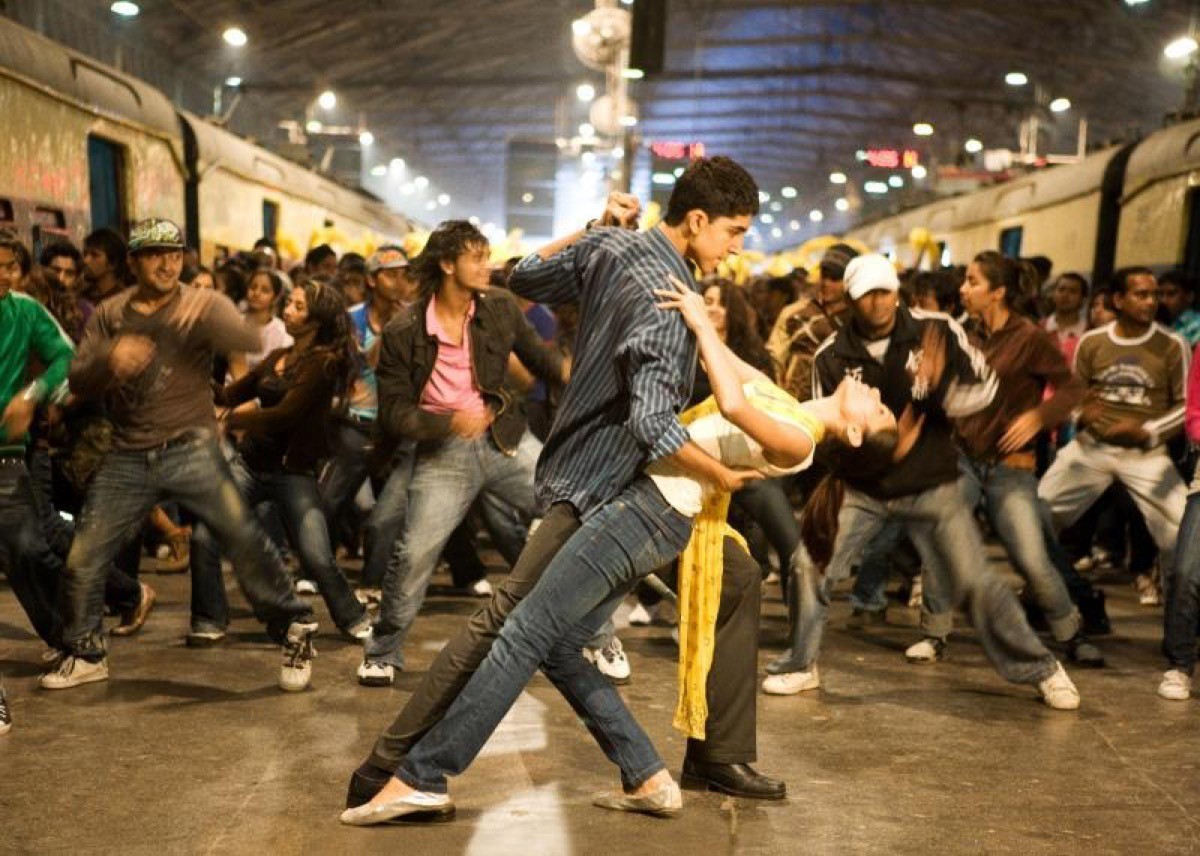
Rags-to-riches Oscar-winner Slumdog Millionaire follows a young Indian man named Jamal (Dev Patel) while he’s a contestant on Who Wants to be a Millionaire?. In a bit of movie magic, every question he’s asked relates to his own life experiences, which are then shown in tear-jerking flashbacks. Everyone loves an underdog story, so audiences loved the film at the time—but even then, it had its fair share of detractors, and its reputation has not improved since.
In a 2018 piece for Bustle, writer Soham Gadre noted that the film was not well received in India, where it’s set, and it was criticized for exploiting “impoverished neighborhoods” in the country.
“Of course this movie is popular in America, they love watching poverty in other countries,” Gadre recounted his father saying after watching the film.
Gadre, an Indian person who grew up in the U.S., also pointed to the fact that while the film was “loosely based” on Q&A, a novel by Indian author Vikas Swarup, the screenplay was written by white screenwriter Simon Beaufoy and directed by white filmmaker Danny Boyle. Gadre accused both men of creating a “third-world amusement park” for viewers, and playing up poverty “for dramatic effect.”
9
The Blind Side (2009)

When The Blind Side first came out, Sandra Bullock was praised by critics for her performance of no-nonsense Southern mom Leigh Ann Tuohy, for which she nabbed the Academy Award for Best Actress. However, it’s another film that critics put in the “white savior” category.
The movie follows Michael Oher (Quinton Aaron), who is adopted by the Tuohy family before becoming a star football player.
“Everything about The Blind Side makes it seem as though Oher didn’t stand a chance without the Tuohys and, while they undeniably contributed to his success, he wasn’t useless without them.” Alicia Adejobi wrote in a 2023 opinion piece for Metro. “It’s almost as though the character was dumbed down to elevate the Tuohys.”
Adejobi also highlighted the stereotypes about Oher’s background, specifically when he goes to see his biological mother and “encounters a violent Black gang.” As Adejobi put it, the scene painted “Black people in a bad light to justify why Oher living with the white family was the better choice.”
While it was meant to be a feel-good true story, the real-life situation became a bit more tangled in Aug. 2023. Oher filed a lawsuit against Sean and Leigh Anne Tuohy, alleging that they filed a conservatorship that kept millions of dollars from him—and never really adopted him. The Tuohys vehemently denied the allegations and said that Oher tried to extort $15 million from them. According to the latest reports, the lawsuit is still ongoing.
RELATED: 6 Old Hollywood Movies You Can’t Watch Anywhere Now
10
The Help (2011)
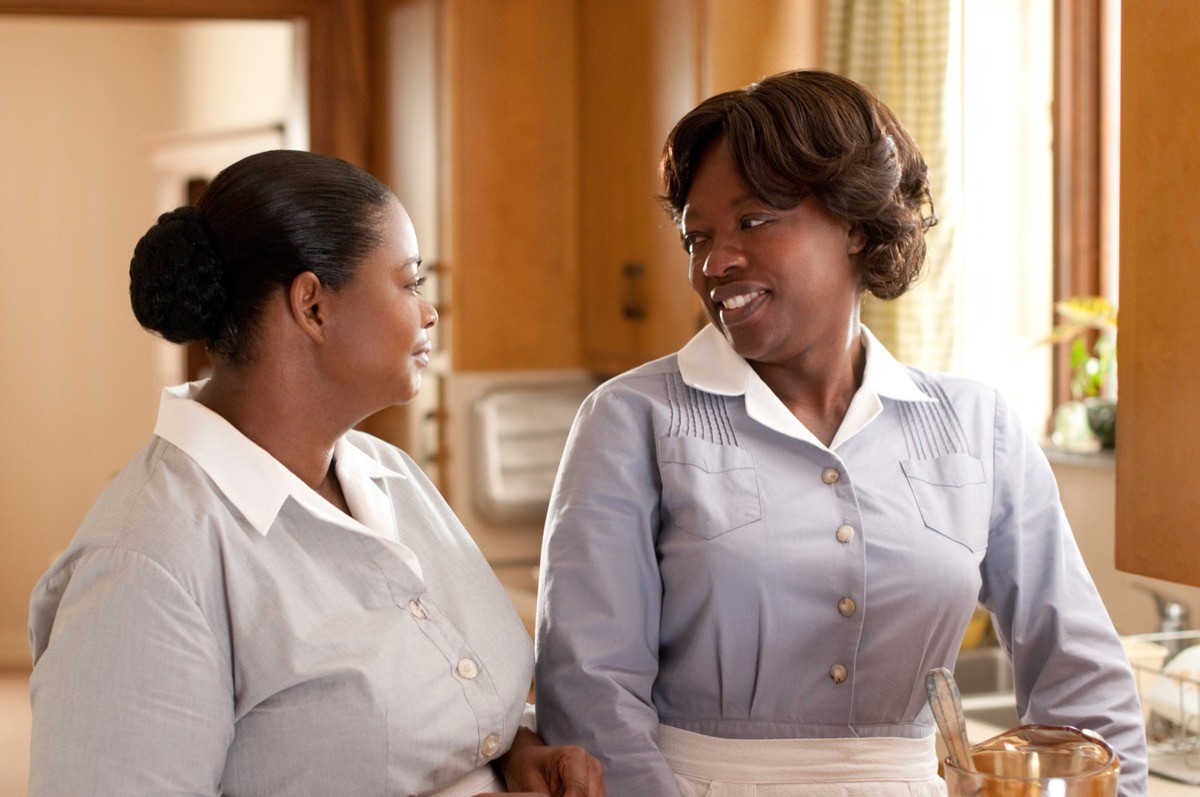
When The Help hit theaters in 2011, lovers of Kathryn Stockett’s book of the same name flocked to movie theaters to see 1960s Jackson, Mississippi, brought to life. NPR poked fun at its “heavy-handedness,” thankfully buffered by performances of the ensemble cast—including Octavia Spencer, who took home the Best Supporting Actress Oscar for her role as spitfire maid Minny Jackson.
In 2020, the movie had a resurgence, with many well-intentioned viewers streaming The Help on Netflix amid the Black Lives Matter movement, USA Today reported. While plenty of these viewers thought the film was educational, critics have pointed to the fact that the book was written by a white woman, the film was directed by a white man, and overall, the movie focuses most on the perspectives of the white characters.
“Not to say the film isn’t entertaining and may have other benefits, but if I were to pick one film that helps us understand where [Black people] are today and what problems we face, that wouldn’t be the one I pick,” Darnell Hunt, director of UCLA’s Ralph J. Bunche Center for African American Studies, told USA Today. “One of the problems with films like The Help is that they’re set safely in the distant past that lets the present off the hook. It’s almost as if, ‘Oh gosh, look how horrible things were back then and look at how far we’ve come today.’ Which of course, isn’t true.”
Viola Davis, who starred as Aibileen Clark and earned an Oscar nomination for Best Actress, even said she regretted being a part of the film.
“Have I ever done roles that I’ve regretted? I have, and The Help is on that list,” she told The New York Times in 2018. Davis went on to explain that her feelings had nothing to do with her experience on set or the cast and crew, but with the characters in the film.
“I just felt that at the end of the day that it wasn’t the voices of the maids that were heard,” she said. “I know Aibileen. I know Minny. They’re my grandma. They’re my mom. And I know that if you do a movie where the whole premise is, I want to know what it feels like to work for white people and to bring children up in 1963, I want to hear how you really feel about it. I never heard that in the course of the movie.”
11
Dallas Buyers Club (2013)

While Dallas Buyers Club didn’t take home Best Picture, Jared Leto did win Best Supporting Actor for his portrayal of Rayon in the 2013 film. Even at the time, Leto taking the role was considered controversial by many—as he played a transgender woman, while being a cisgender man himself.
Some critics said that while Leto’s performance was “Oscar-worthy” the role should have been offered to a trans actor. The issue has been the subject of multiple studies about the stereotypes and representations of gender-diverse communities in mainstream movies.
Similar discussions surfaced around 1991 Best Picture winner Silence of the Lambs, which has long been accused of transphobia due to Buffalo Bill’s obsession with keeping and wearing his female victim’s clothing. While the film tries to emphasize that Buffalo Bill isn’t transgender—Hannibal Lecter even says so—critics have noted that the depiction and the association in audience’s minds is what matters, per Vox.
RELATED: 6 NC-17 Movies That Were Nominated for Oscars
12
Green Book (2018)
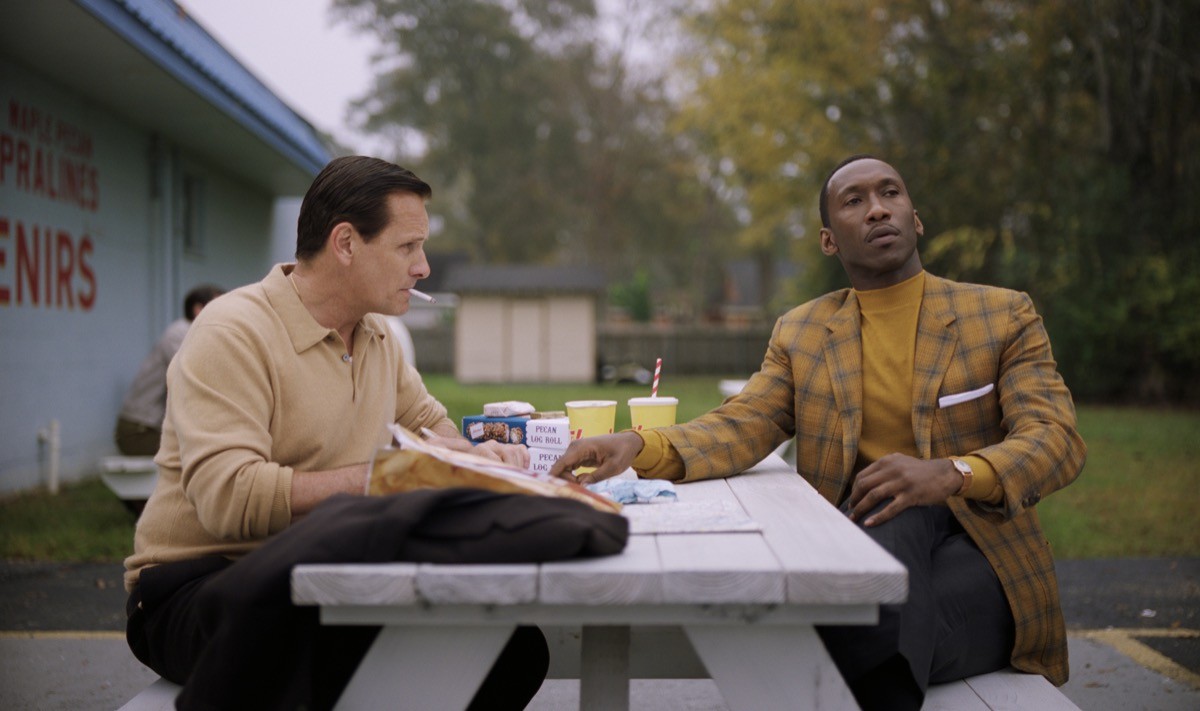
The 2018 film and Best Picture winner Green Book hasn’t really “aged,” as it’s quite a recent winner. Still, the film garnered major criticism upon its release—and just over five years later, it’s a little harder to imagine it earning the same recognition.
The movie follows Black concert pianist Dr. Don Shirley (Mahershala Ali) and his driver and bodyguard Frank “Tony Lip” Vallelonga (Viggo Mortensen) as they travel through the Deep South in 1962. While co-writer (and Tony’s real-life son) Nick Vallelonga said the film was intended to be about friendship and people coming together, others took issue with Green Book, dubbing it a white savior movie.
Instead of focusing on The Negro Motorist Green Book, the guidebook for Black travelers that the movie was named after, the movie “spoon-feeds racism to white people,” Monique Judge asserted in a review for The Root.
“I keep circling back to Lip’s racism because it baffles me that in 2018 Hollywood is still in the business of not only humanizing racists but letting racists like Lip tell stories about Black people,” Brooke Obie wrote in a review for Blavity. “Because Green Book is not just about Dr. Shirley through Lip’s eyes. It’s also about the everyday, non-prodigy Black people that Lip and Dr. Shirley encounter on their journey.”
However, in her review, Judge argued that the film is still “worth seeing for everyone,” especially for the performances, which earned Ali the win for Best Supporting Actor.
“Green Book is not here to teach any lessons. It’s not here to end racism. It’s not here to increase white guilt,” Judge wrote. “It is worth seeing for those (white people) who may need a primer on racism. It is worth seeing just for Mahershala Ali. It is worth seeing for Viggo Mortensen’s amazing tough-guy act. It is worth seeing because nothing has changed. As Mahershala Ali told me when I interviewed him about the film, ‘Discrimination is much more intelligent now.'”
13
The Whale (2023)
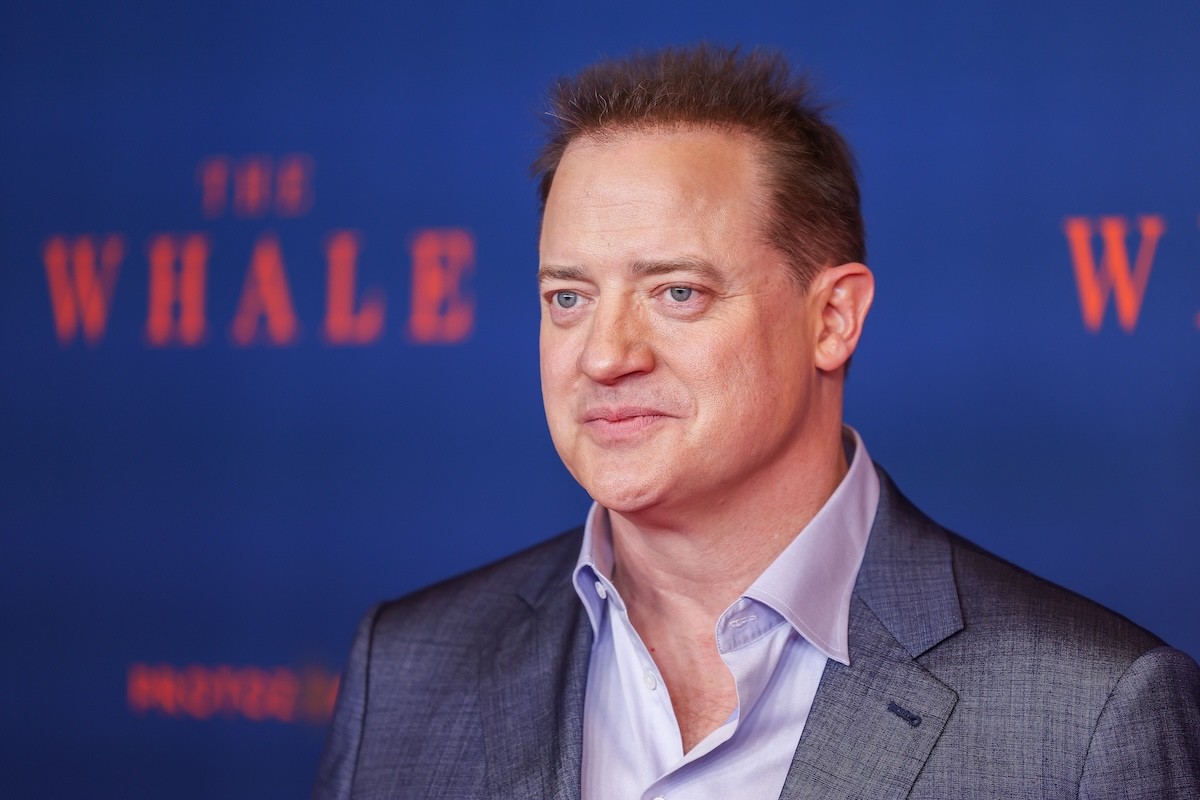
While Brendan Fraser’s Oscar-winning performance in The Whale was widely praised as his official “comeback,” the film was accused of perpetuating harmful stereotypes about fatness. It also used prosthetics to exaggerate the protagonist’s weight rather than cast an actor with lived experience. (The film won an Oscar in 2023 for “Best Achievement in Makeup and Hairstyling.”)
Critics argued that the movie leaned into a “pity narrative,” portraying Fraser’s character, Charlie, as a tragic figure whose weight was a symbol of self-destruction rather than a nuanced part of his identity.
Others also took issue with the depiction of Charlie’s eating habits, suggesting that it played into fatphobic tropes rather than fostering empathy.
Actors, like Daniel Franzese of Mean Girls fame, openly criticized director Darren Aronofsky’s casting choice.
“To finally have a chance to be in a prestige film that might be award-nominated, where stories about people who look like us are being told? That’s the dream,” Franzese told People. “So when they go time and time again and cast someone like Brendan Fraser, me and the other big queer guys, we’re like, ‘What the … ?’ We can’t take it!”
“Why go up there and wear a fat suit to play a 400-lb. queer man?” Franzese added.